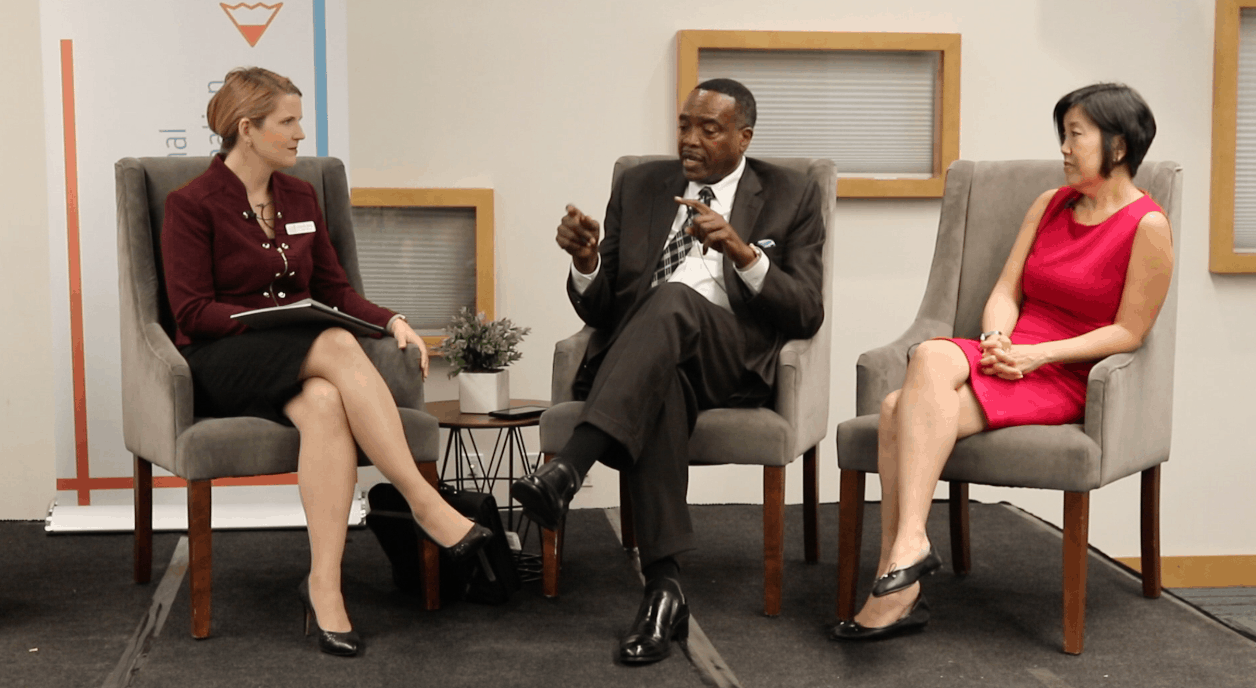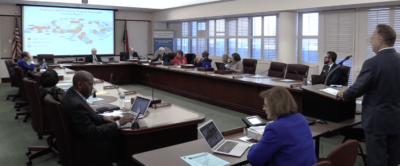On Tuesday, Best NC — a business-oriented education advocacy organization — hosted nationally-known education advocates Michelle Rhee and George Parker for a conversation on their experience with teacher evaluation and school reform in Washington, D.C. schools.
Watch the entire press conference — which came before an event where Rhee and Parker talked with N.C. policymakers — in the video at the bottom of this article.
Rhee was the chancellor of D.C. Public Schools from 2007 to 2010, and was also being considered as President Donald Trump’s pick for the U.S. Secretary of Education. That did not happen — Betsy DeVos was confirmed as education secretary yesterday. Parker was the president of the Washington Teacher’s Union from 2005 to 2010.
Both sensing a need for drastic change, Rhee and Parker disagreed on how to turn around a failing school system.
“When I took over the D.C. public schools in June of 2007, we were largely considered the most dysfunctional and lowest-performing school district in the country,” Rhee said. “We were the only school district in the country that was on high-risk status from the U.S. Department of Education.”
They had among the highest per-pupil expenditures but also had some of the lowest levels of performance in urban school districts. Rhee said only eight percent of eighth graders were performing at grade level in math. At the same time, almost all of the district’s teachers were scoring well on their evaluations.
“You can’t have a system that is just continually failing kids and yet, we’re saying, ‘All the adults, you’re doing just fine,'” Rhee said.
Rhee wanted to make serious changes, and Parker was of a more traditional public school mindset. He represented teachers that were going to lose their jobs or their seniority under Rhee’s system.
“When Michelle first came,” Parker said, “we had some battles. Without a doubt, we had some battles.”
But they came together in a compromised contract that installed a new teacher evaluation and compensation system called IMPACT. Fifty percent of the teacher evaluation is based on student achievement gains, and the other 50 percent on classroom observations and contributions to the school community.
The school system also later created career pathways for teachers who wanted more responsibility but didn’t want to leave the classroom through a program called LIFT.
The appearance by Rhee and Parker came before a legislative gathering Best NC had Tuesday evening. That event was not open to the press or the public, which concerned some public education advocates.
Teacher Stuart Egan wrote he was heavily worried about Rhee — a controversial figure to many — coming to an event hosted by an organization that claims to be nonpartisan.
“In my 18 years of teaching in public schools and in my active advocacy for fully-funded public schools, I have never encountered a more polarizing figure than Michelle Rhee,” Egan wrote. “In fact, I (and many others) consider Ms. Rhee the antithesis of how to approach helping public schools. In every endeavor she has undertaken in ‘improving’ educational outcomes, she has left disunity, damage, and a large void in her wake.”
Egan wrote that he is also concerned about Rhee’s advocacy for school vouchers, which were expanded by the N.C. General Assembly in last year’s budget.
Watch the full press conference below, moderated by BEST NC’s president and CEO Brenda Berg.



